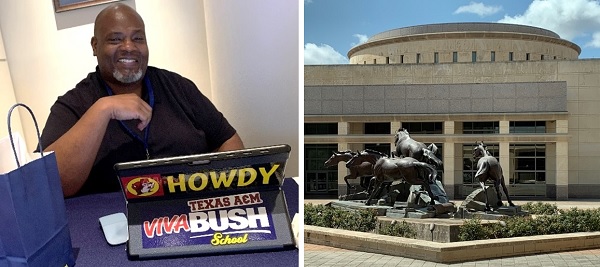At Ken Hubbell Consulting, we help leaders unlock fresh strategic insights that improve impact on the issues that matter most. We employ a unique mix of visual strategy tools and coaching to elevate the work of impactful leadership.
For several summers, Ken has been a visiting practitioner at Texas A&M’s Bush School — Center for Nonprofits and Philanthropy. This year’s focus was on supporting leaders in finding strategic pivots to shape a better future, in sharing a convincing message of change despite the new uncertainties, and in redrawing their roadmaps for 2023 and beyond. Below, we summarize highlights from the leadership learning workshop.
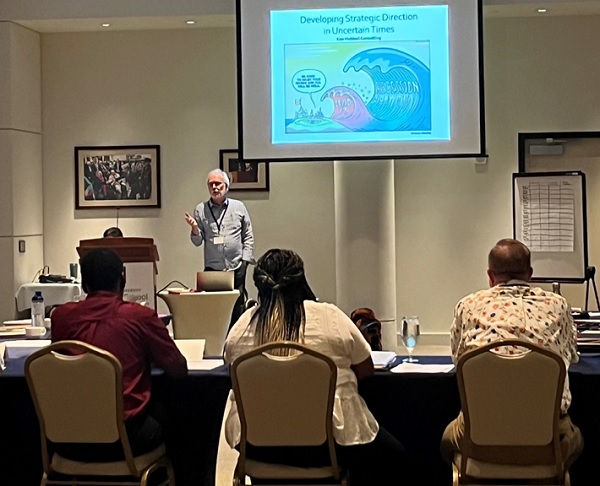
Plan for the continuation of the unexpected.
Using future-focused strategic planning helps leaders rehearse the unexpected and frame uncertainty as a range of unfolding futures. We discussed Deloitte’s Zoom Out/Zoom In (CFO Insights: Strategic Planning—Why You Should Zoom Out and Zoom In | Deloitte US) and scenario-building as effective approaches for strategy refinement in the shifting business and social environments.

Challenge your assumptions and habits to reperceive new options.
We discussed the essential questions about the new business and social landscape ahead and the features of effective leadership that will ensure success in the likely futures. Ken reminded the group of the Peter Drucker observation about the common barriers to challenging our assumptions, “the biggest threat when faced with mounting turbulence is to confront it with yesterday’s logic.” Practitioners explored the limits of current thinking and the subtle influences of underlying assumptions that may be obscuring new possibilities.
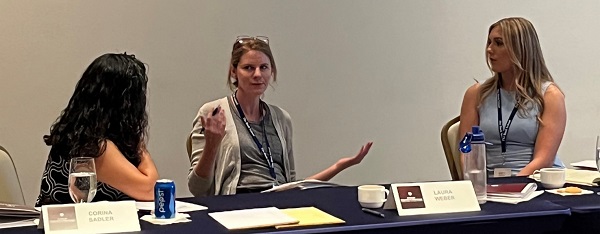
We elevated the importance of celebrating and sustaining the core features of your institution or programs that truly produce strong value for customers and constituents. The group explored a useful reinforcing strategy “loop” to test ways to expand impact in the coming months of uncertainty by “acting bigger” and “adapting better.” This strategy tool from the Monitor Institute (What’s Next for Philanthropy – PDF) provided an accessible concept for these public sector leaders.
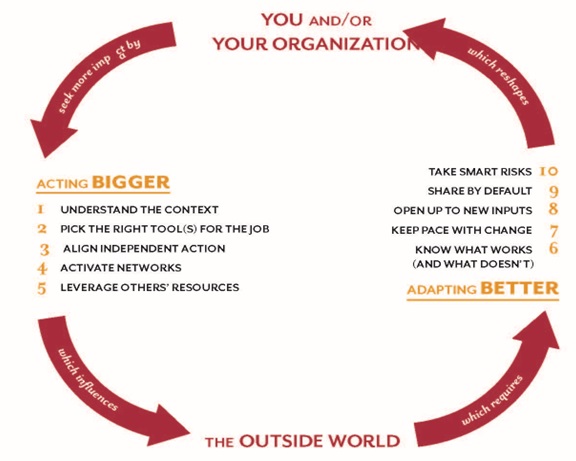
Build a learning strategy to adapt faster.
We focused on the importance of unlearning and learning that will be critical to expand effective adaptation in the next 12-18 months. This is a good time to revisit leadership wisdom from author Ronald Heifetz (Leadership on the Line; The Practice of Adaptive Leadership): most leaders respond to a new, uncertain challenge with known—technical responses: doubling down on what worked yesterday instead of stretching into new territory to initiate a breakthrough. Hubbell shared the classic Adaptive Cycle for all living systems (Panarchy: Understanding Transformations in Human and Natural Systems) as an effective concept for building a more resilient organization. Expanding trust, communication, and a strong sense of agency among teams can speed up successful adaptation in the face of turbulence.
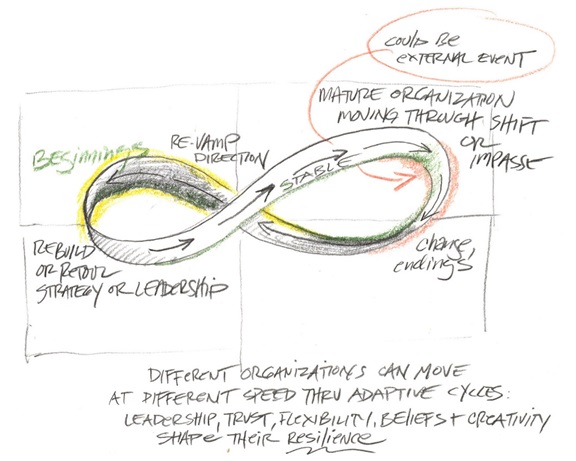
In summary, we all agreed the region needed us to create and sustain greater impacts. We took some energizing steps together. Thanks to The Bush School colleagues and practitioners. It is a great community of change-makers. (The Bush School of Government & Public Service – tamu.edu)
